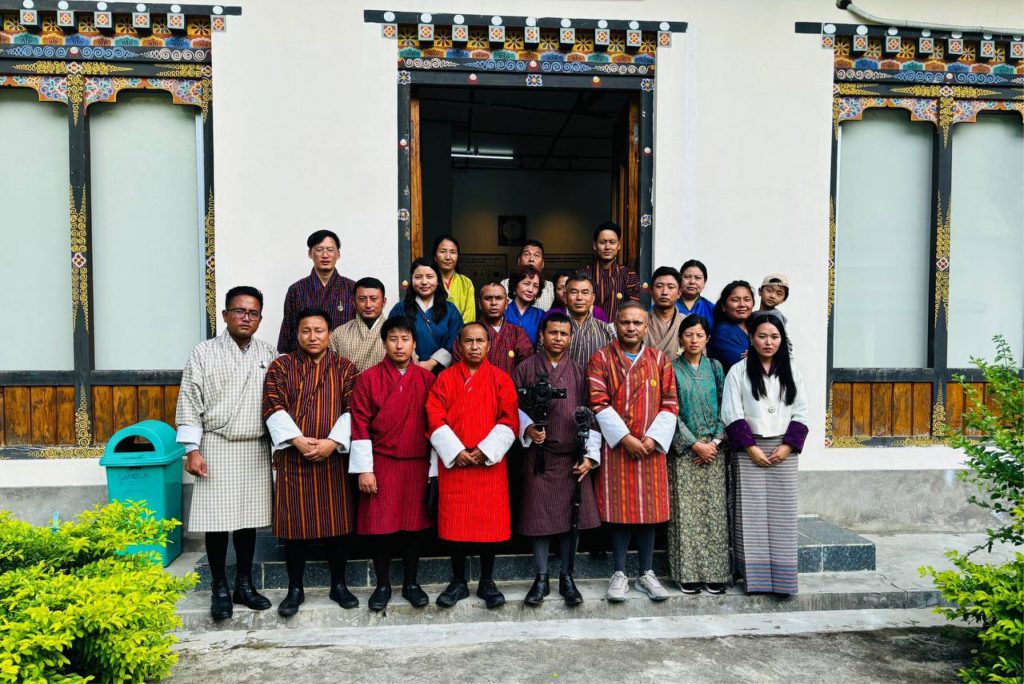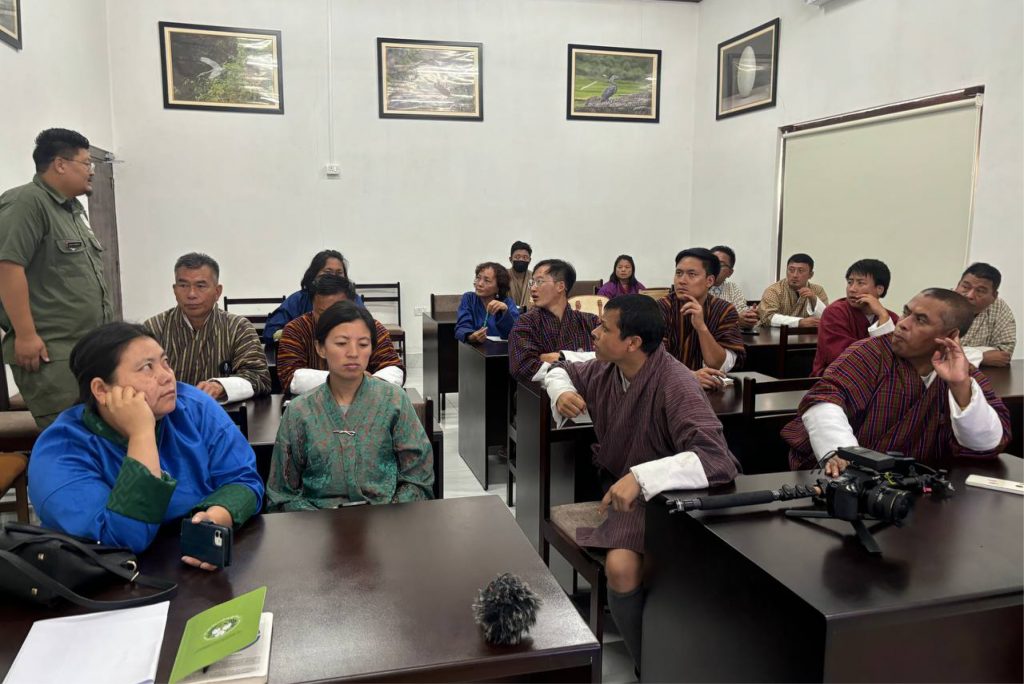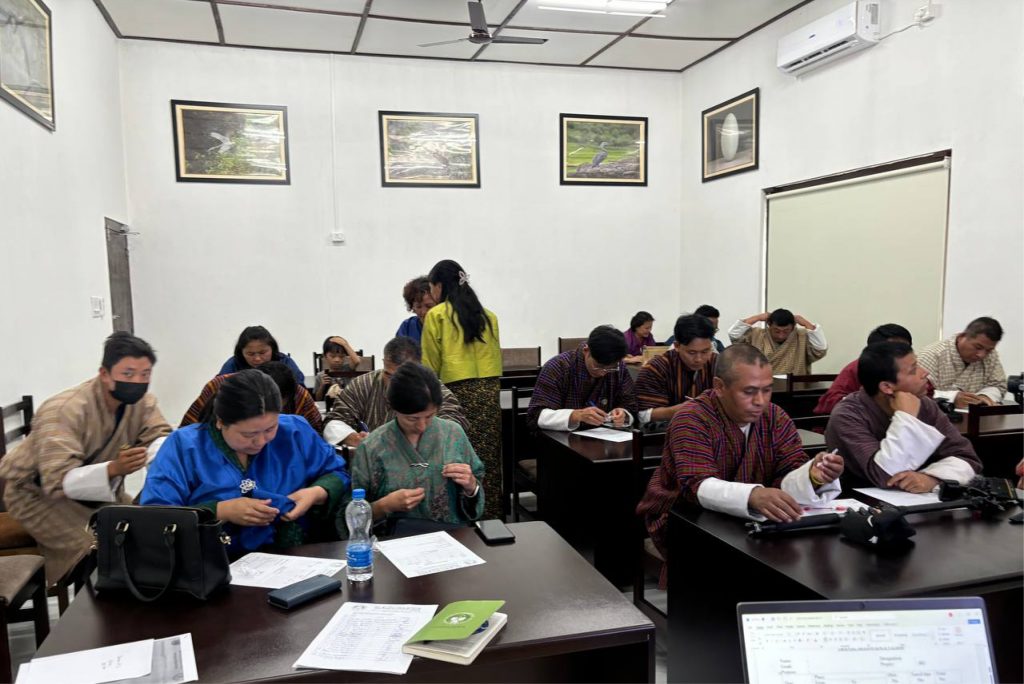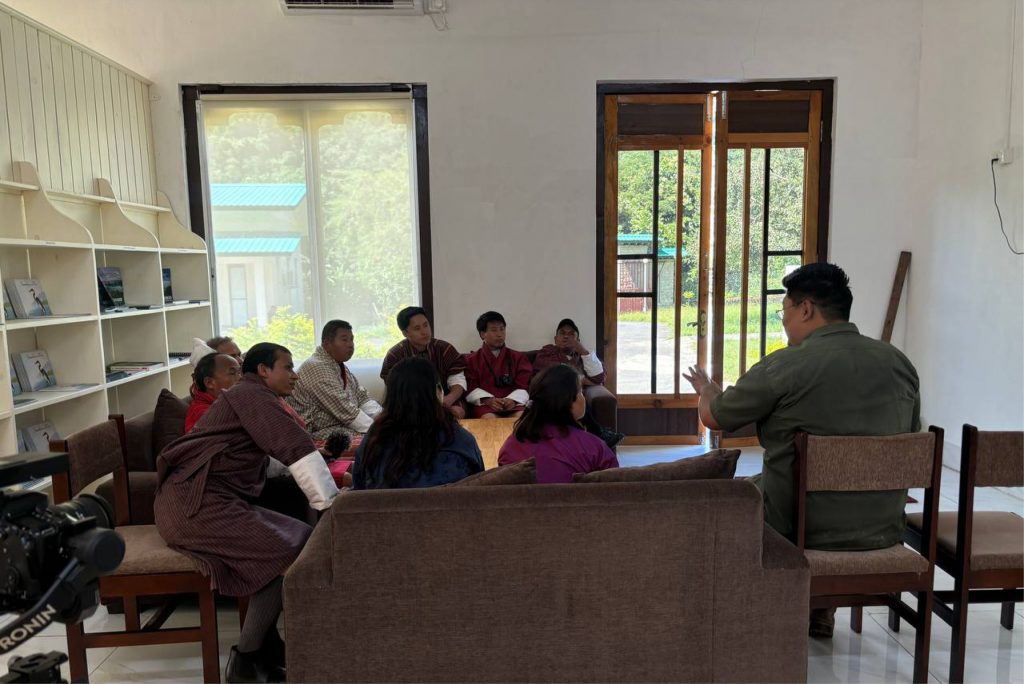The Royal Society for the Protection of Nature (RSPN) staff of White-bellied Heron Conservation team organized an advocacy program to Bjimithangkha primary school sector staff on 6th October 2024 as part of a conservation initiative focused on the White-bellied Heron (WBH). The conservation of White- bellied Heron is a matter of urgent global concern. Educating the importance of conservation efforts plays a crucial role in safeguarding our biodiversity. Only less than 60 individuals of WBH remain in the world. Bhutan is fortunate to be one of the last refuges for this majestic bird, particularly within the habitat along the Punatsangchhu river in Wangdue district.The WBH -CC team member made a guided tour for the participants and presented on the ecology and some of the conservation approaches RSPN applies in reviving and sustaining the low population of WBH.
The day program began with a presentation on RSPN roles and the White- bellied Heron ecology, the benefits of conserving WBH (ecological, socioeconomic) and means to mitigate the threats to WBH. Participants were divided into two groups, they were introduced to captive breeding facilities of WBH and explained about the standard protocol involved in breeding, rearing and feeding of WBH. The program also highlighted the significant role schools can play in conservation efforts and furthermore the school leader shared about their environmental education program such as cleaning campaign and advocacy program on WBH to be held in their district. In between the session participants were encouraged strongly to raise questions and doubts, allowing them to voice their thoughts and curiosity about the WBH conservation.
The advocacy program successfully met its objectives of raising awareness and fostering a sense of responsibility towards environmental conservation. Feedback from the participants indicated that the program was both educational and inspiring. The knowledge and inspiration gained from this visit will have a lasting impact, not only on the teacher themselves but also on the students and communities they serve.
The advocacy program successfully met its objectives of raising awareness and fostering a sense of responsibility towards environmental conservation.The participants represented both genders, but there was a higher number of male participants, leading to a male-dominated group. However, all participants contributed equally and actively to the session, regardless of gender.In total there were 6 numbers of female participants and 15 numbers of male participants.




Copyright © 2026 RSPN All Rights Reserved